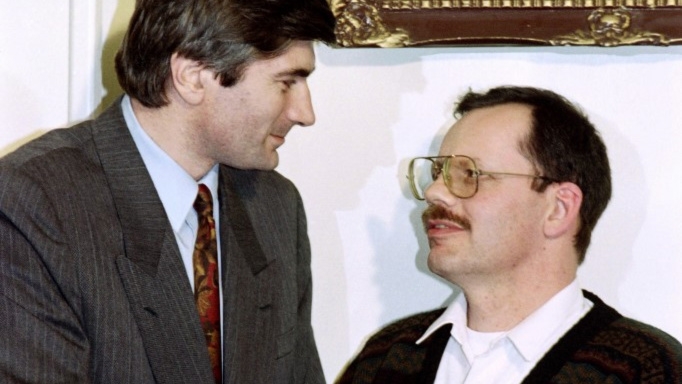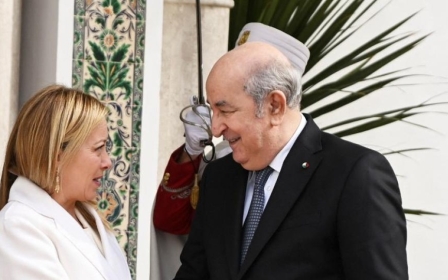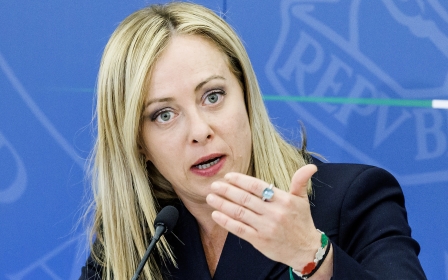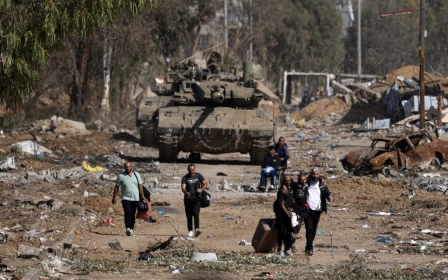Giandomenico Picco: The forgotten art of Middle East diplomacy

A great Italian diplomat recently passed away. His name was Giandomenico Picco and, unfortunately for my home country, he did not work for the Italian foreign service, but rather as a UN diplomat.
In this capacity, Picco spent 20 years helping to resolve conflicts around the globe. His most outstanding achievements included mediating an end to the long and bloody Iran-Iraq war in 1988, and negotiating the release of 11 western hostages held in Lebanon in the 1990s.
He began working at the UN in 1973 at the lowest rank in the Department of Political and Security Council Affairs, and within just a couple of years, he was already on the front lines of the complex Cyprus issue.
He was also active in the France-New Zealand crisis after French intelligence operatives sunk, in an Auckland harbour, the Rainbow Warrior, a Greenpeace ship that was protesting against French nuclear testing in the Pacific Ocean.
Former UN Secretary General Javier Perez de Cuellar enlisted Picco in the 1980s to conduct the most delicate UN missions and mediating efforts, including the Soviet withdrawal from Afghanistan, making Picco his most trusted troubleshooter.
New MEE newsletter: Jerusalem Dispatch
Sign up to get the latest insights and analysis on Israel-Palestine, alongside Turkey Unpacked and other MEE newsletters
He worked tirelessly to end the Iran-Iraq War, a major conflict in a highly volatile region, which caused massive casualties and major disruptions to oil markets and commercial shipping. His fair play and discreet work earned him the esteem and appreciation of all parties involved.
In Tehran, Picco made an important investment in his personal relations with the ruling clergy, which several years later helped him significantly in solving the crisis of the 11 western hostages held by Hezbollah in Lebanon.
The art of diplomacy
Picco carried out his duties without weapons or a security detail, taking great personal risks to reach the places selected for his meetings between Syria and Lebanon, sometimes concealed in the trunk of a car. His memoir was titled Man Without a Gun.
His courage was legendary, considering that one of the hostages in Lebanon, Anglican church official Terry Waite, had been taken captive during a similar mediation mission in 1987.
In 1991, former US President George HW Bush presented Picco with the Presidential Award for Exceptional Service, citing “his skillful diplomacy with Middle Eastern governments and officials and representatives of the hostage holders”, in addition to “his personal courage in the face of danger and his dedication to the mission”.
Picco was an inexhaustible mine of information, anecdotes and advice on the complex, and sometimes obscure, dynamics of the region
Picco was an impeccably dressed, towering figure who impressed with his discretion and cautious speaking. I was lucky to get acquainted him in the early 2000s, when I was an official with the Italian diplomatic mission at the UN. Picco had already left to set up his own consultancy firm. It was the beginning of a friendship that lasted two decades.
For a young diplomat like me, in charge of Greater Middle Eastern affairs at the UN in New York in the hectic years between 2000 and 2004, Picco was an inexhaustible mine of information, anecdotes and advice on the complex, and sometimes obscure, dynamics of the region.
He introduced me to Gulf/2000, an extraordinary mailing list of former diplomats, academics and Middle East and Gulf experts whose views and opinions on the region are discreetly exchanged under the wise supervision of Columbia University professor Gary Sick, a former White House adviser. Gulf/2000 became an extremely useful tool for my job.
Picco provided an exemplary lesson in the art of diplomacy, showing that to achieve diplomatic success and promote peace, it is necessary to engage anyone who can contribute, without preconditions or restrictions. He showed that cognitive empathy, soft speaking, patience and persuasion can achieve far more than military deterrence, financial sanctions and blackmail, which are too often used by the increasingly isolated West.
While diplomacy seems less and less able to achieve results, as Ukraine and the Middle East are tragically showing, Picco’s lesson seems to have been forgotten - and this is a shame.
The views expressed in this article belong to the author and do not necessarily reflect the editorial policy of Middle East Eye.
Middle East Eye delivers independent and unrivalled coverage and analysis of the Middle East, North Africa and beyond. To learn more about republishing this content and the associated fees, please fill out this form. More about MEE can be found here.





